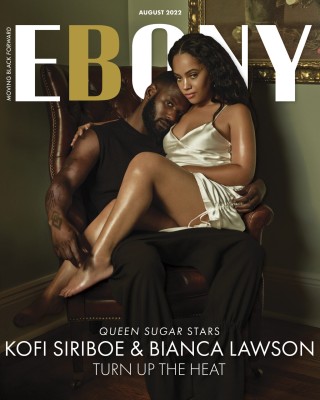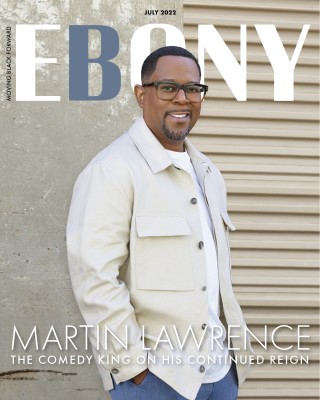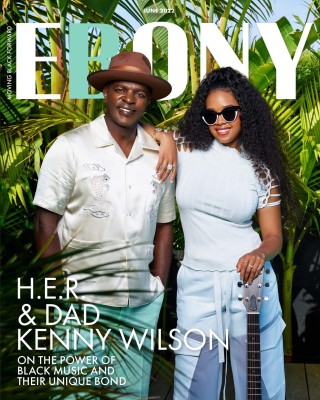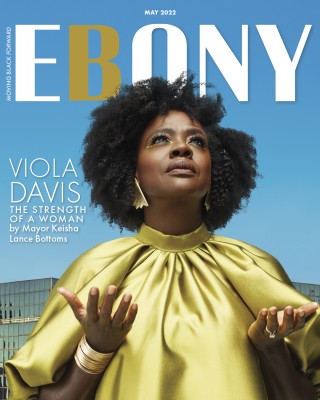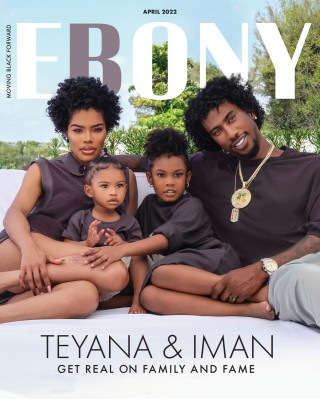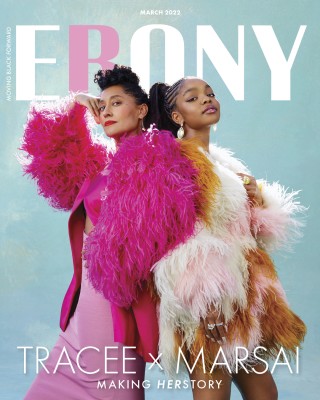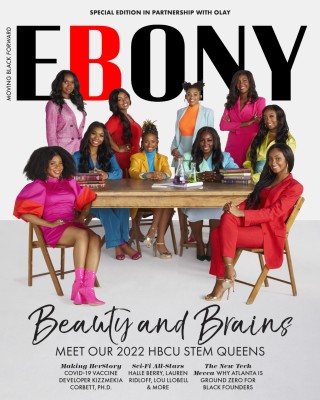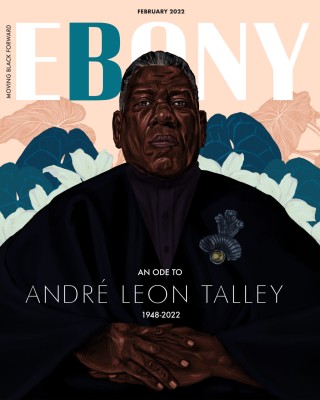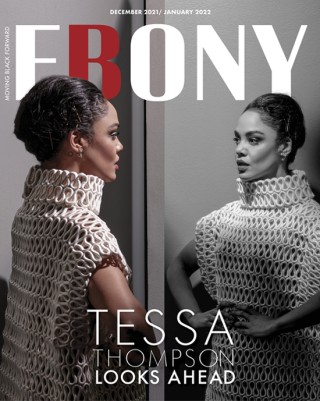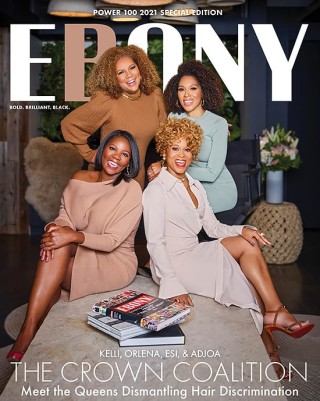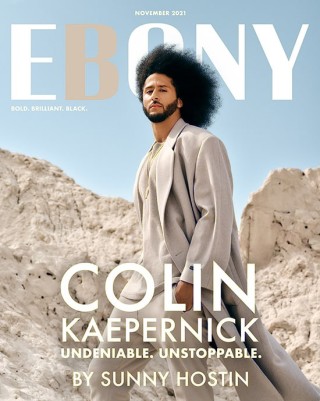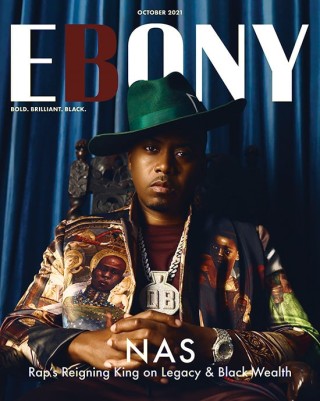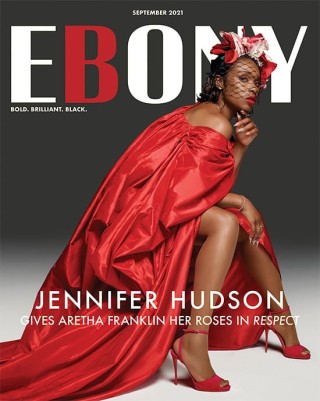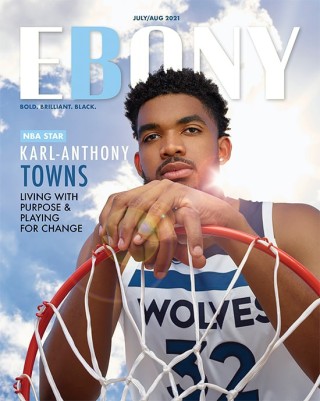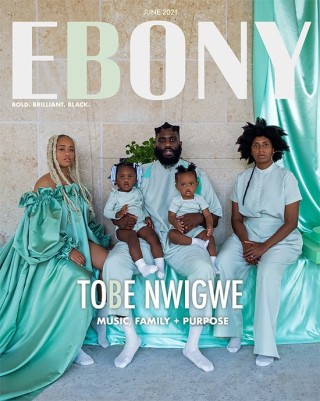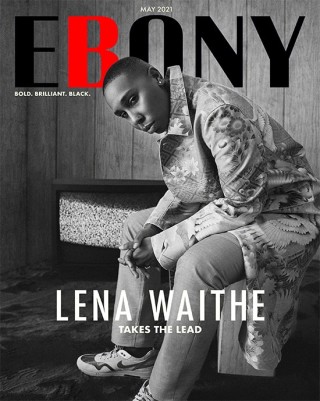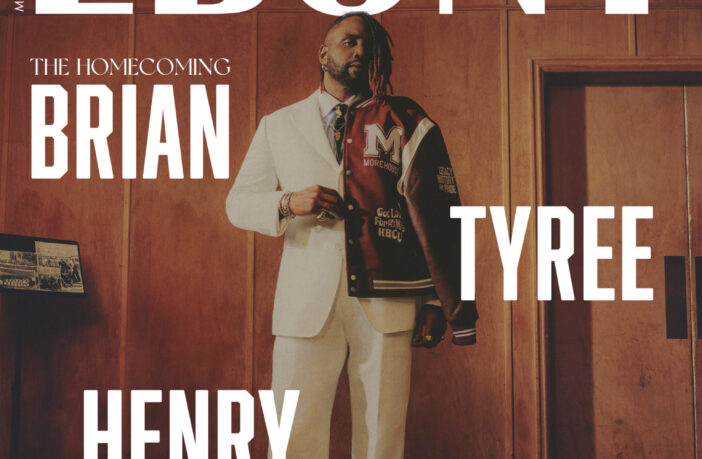Brian Tyree Henry lounges in a chair, jeans and a worn T-shirt hanging off him in a way that suggests ease, not indifference. His fingers, stacked with silver rings, trail along the armrest, and his eyes—at once perceptive and elusive—take in the room without offering much in return.
There’s a quiet gravity to the 41-year-old actor, the kind of presence that pulls you in yet keeps you at arm’s length. Hours later, I’ll see him stride through the madness of the Toronto International Film Festival’s red carpet with the same effortless command. But here, in this intimate setting, his calm presence feels perfectly in tune with the moment.
We’re both Morehouse Men, an immediate bond that doesn’t need much explanation. When I bring up our alma mater, Henry chuckles.
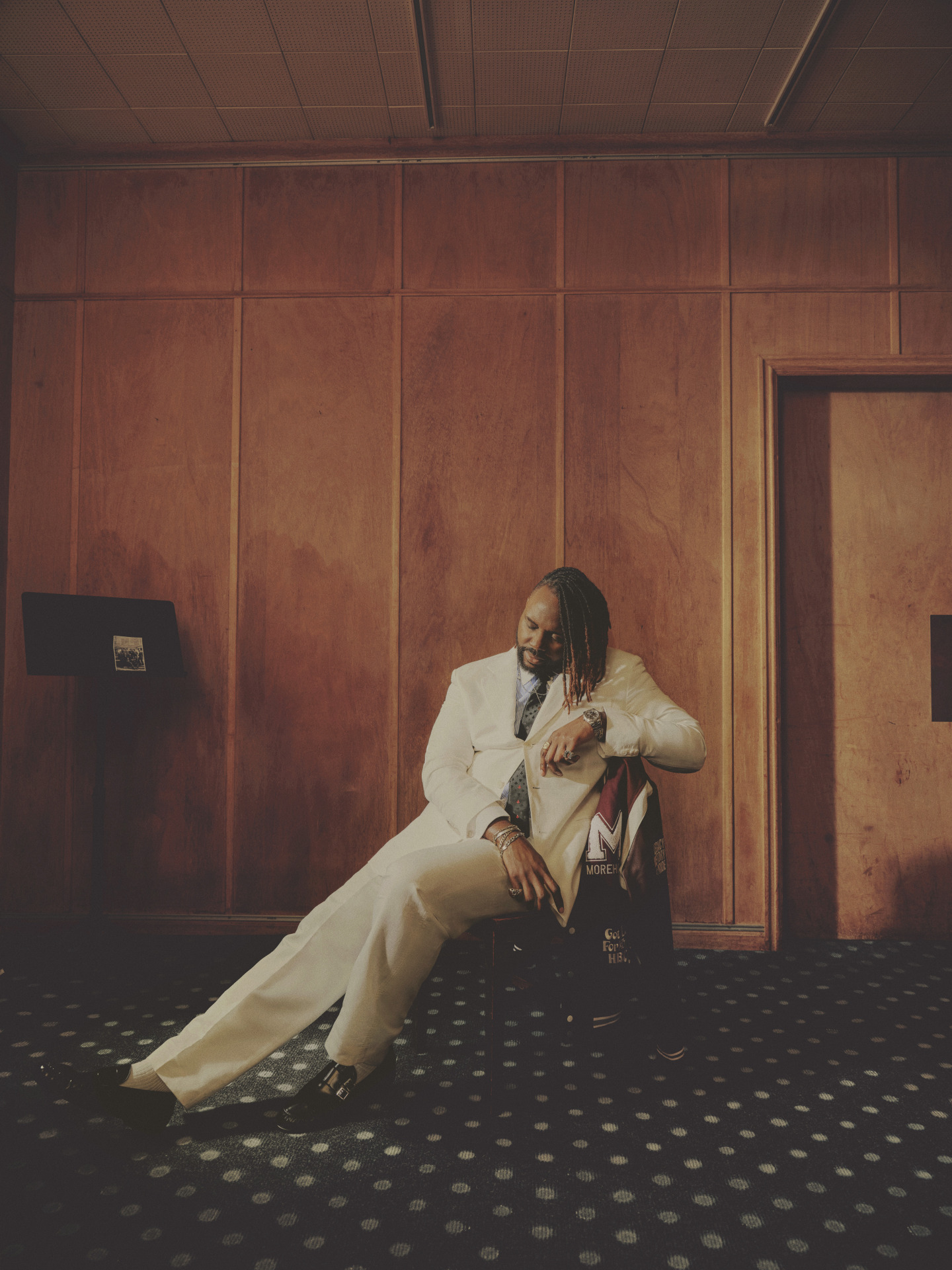 Image: Micaiah Carter for EBONY.
Image: Micaiah Carter for EBONY.
“People think it’s about tradition, about being a certain kind of man. And yeah, there’s some truth to that,” he says. “But for me, it was about learning to be myself.”
This rebellious streak, at odds with Morehouse’s polished image—The Morehouse Mystique—was where Henry found his strength.
“You don’t make it through Morehouse without fighting for yourself,” he tells me. “That’s what this place gave me—the ability to stand in my truth, even when it was hard.”
That ability to stand firm in who he is has defined Henry’s career, too. He slips in and out of roles effortlessly, inhabiting vastly different characters while maintaining a core authenticity.
His breakout turn as Alfred “Paper Boi” Miles in FX’s Atlanta—a rapper navigating fame, family, and sudden success—is a perfect example. Henry plays the character with a mix of humor, vulnerability, and pain, giving depth to what could easily have been a caricature.
Then there’s his most lauded role as Daniel Carty in If Beale Street Could Talk, where Henry delivers a brief but devastating portrayal of a man shattered by a system designed to break him. He was robbed of the Best Supporting Actor Oscar for this role, in my humble opinion.
The transformation is startling—where Atlanta showed a man with swagger and humor If Beale Street Could Talk offers one stripped to his rawest, most vulnerable self.
His voice work in Spider-Man: Into the Spider-Verse as Jefferson Davis, the father of Miles Morales, is another standout. Henry’s warmth and gravitas ground the fantastical elements of the film, making the love and concern of a father feel palpable. It’s a testament to his versatility—he can bring the same depth to an animated superhero film as he does to a heavy drama.
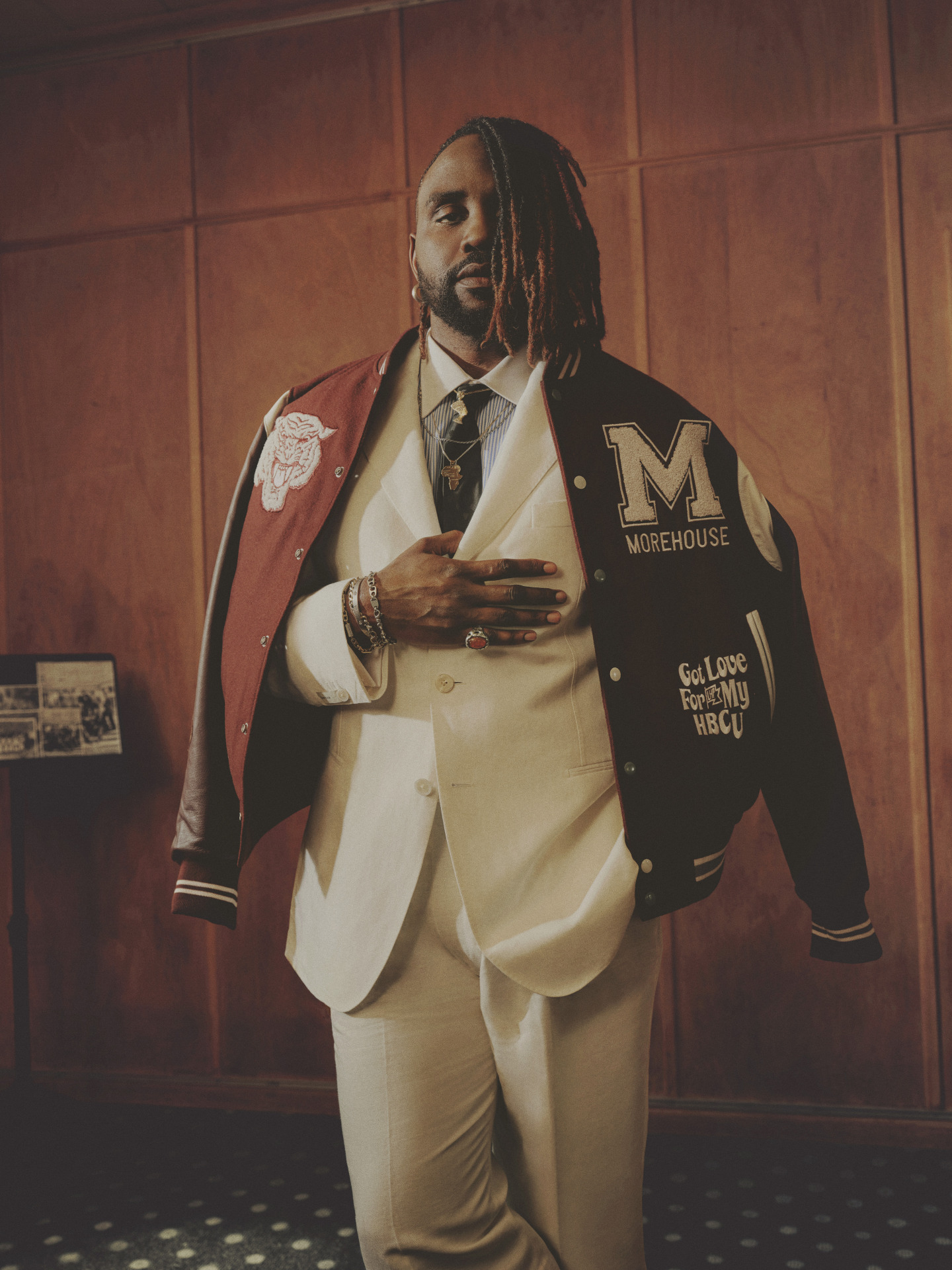 Brian Tyree Henry wears a Ralph Lauren suit, shirt and tie, LegacyHistoryPride letterman jacket, ASOS loafers and his own jewelry and eyewear. Image: Micaiah Carter for EBONY.
Brian Tyree Henry wears a Ralph Lauren suit, shirt and tie, LegacyHistoryPride letterman jacket, ASOS loafers and his own jewelry and eyewear. Image: Micaiah Carter for EBONY.
When I ask him how he manages to embody such different characters with ease, Henry credits being “in the moment” and his own self-advocacy. “I always want the presence of my character and their opinions and their heart to be known all the time,” he says warmly.
He’s like that in person—radically present at all times, fine-tuned to his space and the people in it. In fact, Henry seems to be in conversation with everyone around him—a nod to a passerby, a question to the stylist adjusting his collar, a joke to me, the interviewer. It’s like life’s a stage, and he’s doing improv. He’s all “Yes, and.”
We rarely see such straight-up theater kid energy from a large Black man, but we should. This radical presence has made him one of the most compelling actors today.
For Henry, shape-shifting isn’t just an acting skill—it’s a survival mechanism honed during his formative years at Morehouse. He vividly recalls the struggle to conform to the school’s rigid traditions. And Morehouse, known for molding young Black men into paragons of success and excellence, didn’t quite know what to do with Henry.
“I rebelled against everything my freshman year,” he recalls, laughing. “Oh, you’re supposed to get your haircut? I was like, psych. I stopped cutting my hair. I remember they were like, you need a black suit, blue suit. I was like, psych won’t be doing that. Blue pen, black pen. Nope. Pencils. Like, I mean, like everything that they told me, for some reason I was like, I feel like I have to find my own way.”
But this rebellion wasn’t just about rejecting the rules. It was Henry’s way of carving out space for himself in an institution that didn’t always leave room for nonconformists. He began studying business, the expected path, but soon found himself pulled toward the theater, where he could fully express himself.
It was at Spelman College, Morehouse’s sister school, where Henry finally found his creative community.
“I just was not interested in business. I just knew that wasn’t what I wanted to do, but it’s what I was told I needed to do. So I stayed there,” he recalls. That is until a fateful intervention during a class.
“Two of my buddies knocked on the glass, and they were like, ‘You know that they’re auditioning for a play at Spelman. You should come—in the middle of the class,” Henry recalls with a laugh. “I was like, ‘Great!’ I looked at the professor, I was like, ‘I won’t be back’.”
He ditched the class, auditioned for Antigone, and landed the role of King Creon. Soon, he traded business classes for theater, where he finally found the freedom to experiment and create.
“We were crazy in the theater arts department at Spelman,” he says, recalling how he and his friends tackled everything from August Wilson to Molière. “We would crack plays open that were traditionally for white actors and we would just flip them on their heads,” he says, his eyes lighting up at the memory.
That search for authenticity, for a way to be true to himself while moving through spaces not built for him, has been a constant in Henry’s career.
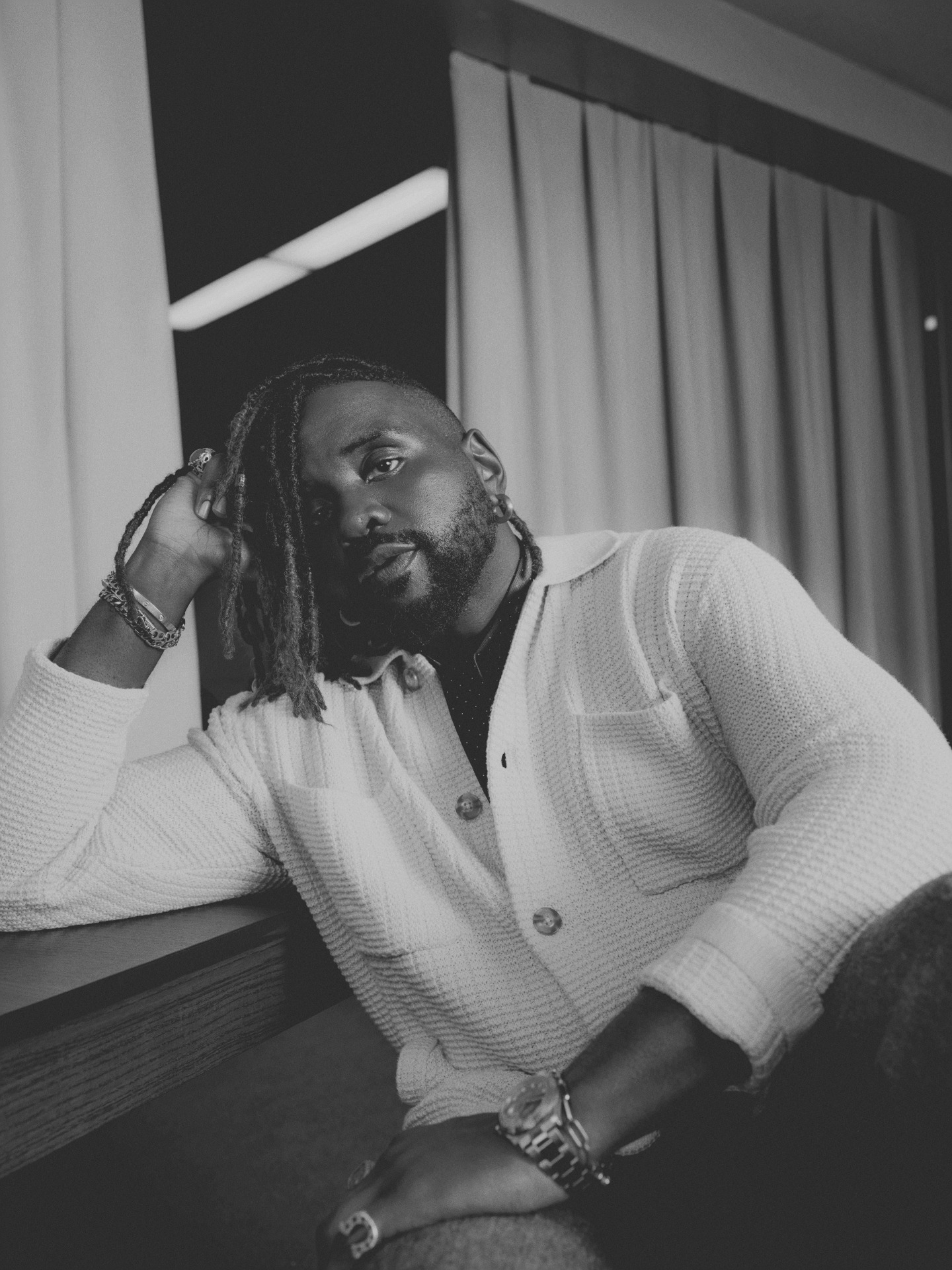 Brian Tyree Henry wears an Abercrombie sweater, ASOS trousers, Vintage tie scarf and his own jewelry and eyewear. Image: Micaiah Carter for EBONY.
Brian Tyree Henry wears an Abercrombie sweater, ASOS trousers, Vintage tie scarf and his own jewelry and eyewear. Image: Micaiah Carter for EBONY.
“A lot of the characters that I have portrayed, most of them are characters that most people wouldn’t even allow in their living rooms,” he says, “But they’re still people that exist and that you need to know.”
It’s a statement that is both defiant and empathetic. It’s what makes his work so vital. He gives voice to the voiceless, crafting performances that are as much about what isn’t said as what is.
A longtime friendship with Samuel L. Jackson, another Morehouse alum, has been another constant in Henry’s career. Jackson noticed Henry’s talent early in his career and has been a mentor ever since.
“I went to school very briefly with his daughter, Zoe Jackson. And we got very close. Once I started coming out in the theater circuit and then I started doing TV and film, he took notice very quickly and let me know that he took notice.”
The check-ins are exactly what you’d expect from the brash actor who was part of a group of Morehouse students that held the college’s board of trustees hostage in 1969, demanding a Black studies class be added to the curriculum.
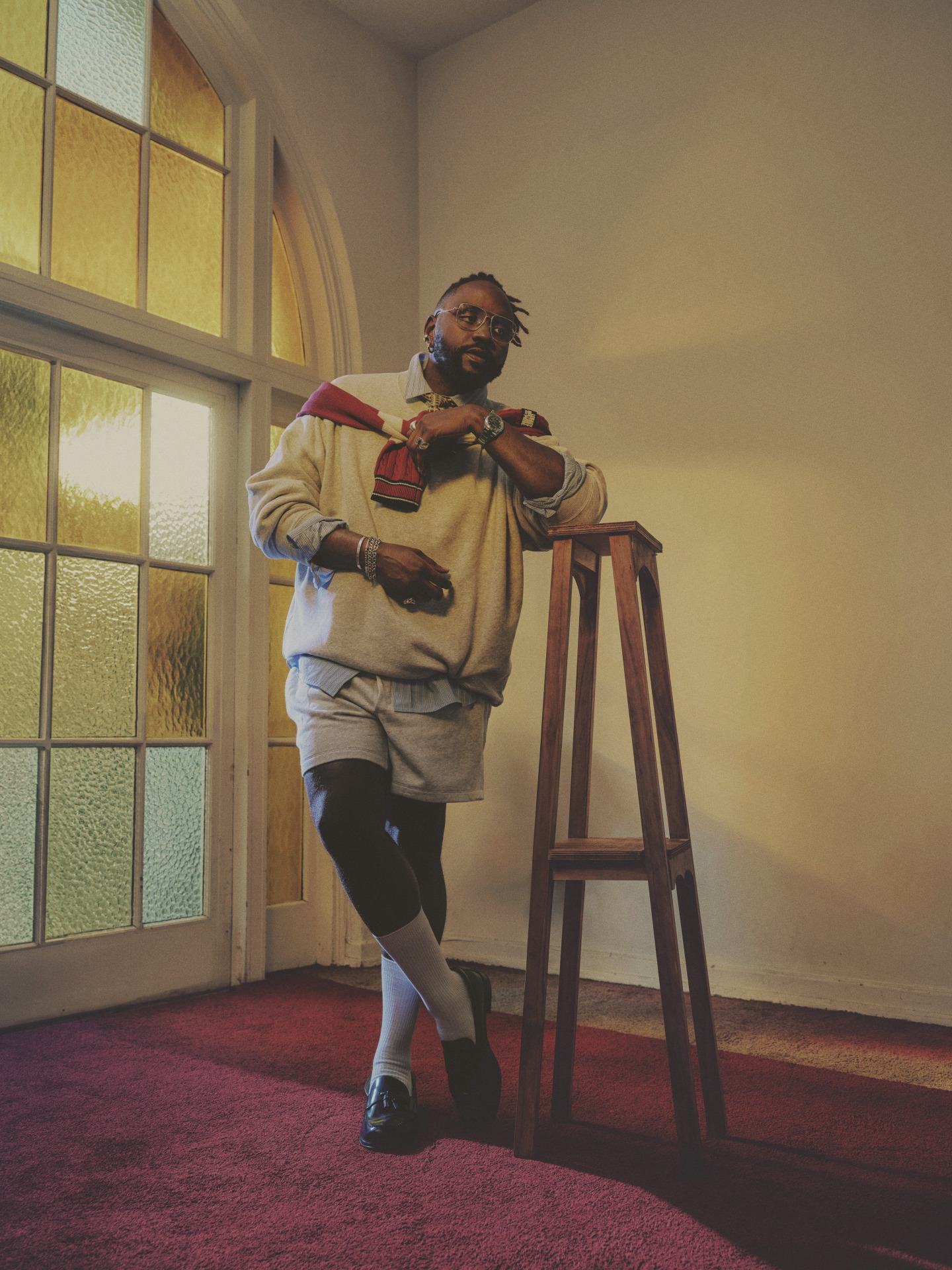 Brian Tyree Henry wears LegacyHistoryPride sweater over his shoulders, Abercrombie sweater and shorts, Aimé Leon Dore, Vintage loafers and his own jewelry and eyewear. Image: Micaiah Carter for EBONY.
Brian Tyree Henry wears LegacyHistoryPride sweater over his shoulders, Abercrombie sweater and shorts, Aimé Leon Dore, Vintage loafers and his own jewelry and eyewear. Image: Micaiah Carter for EBONY.
“[Sam] is very much who he is. He’s like, ‘Hey man, congrats. It’s about time motherfuckers took notice’,” Henry says.
Now, as Hollywood slowly embraces more nuanced Black stories, Henry is at the forefront. He portrays everything from boxer Claressa Shields’ real-life coach and father figure Jason Crutchfield in The Fire Inside to the voice of Megatron—the Megatron—in the animated film Transformers One.
For Henry, it’s not just about taking up space in Hollywood; it’s about expanding that space for others. “I’m always trying to bend imagination. I’m always just trying to stretch that rubber band as far as I can to test the elasticity of people’s imagination.”
Henry is now more than just an actor—he’s stepping into roles behind the camera, too. As an executive producer on a new Apple TV+ series written by Peter Craig and directed by Ridley Scott, Henry is shaping the stories he tells in new ways.
Later that night, Henry steps onto the TIFF red carpet, a striking figure in a burnt-orange suit, his locs tied neatly atop his head. The flashbulbs pop and the crowd buzzes, but he moves through it all with the same grounded grace, acknowledging fans and familiar faces with warm smiles and measured waves.
It’s the kind of moment where the machine of celebrity could take over—where performance becomes a shield—but with Henry, nothing is ever that simple. This is where the shape-shifter reappears, not in the guise of another role but as the man himself.
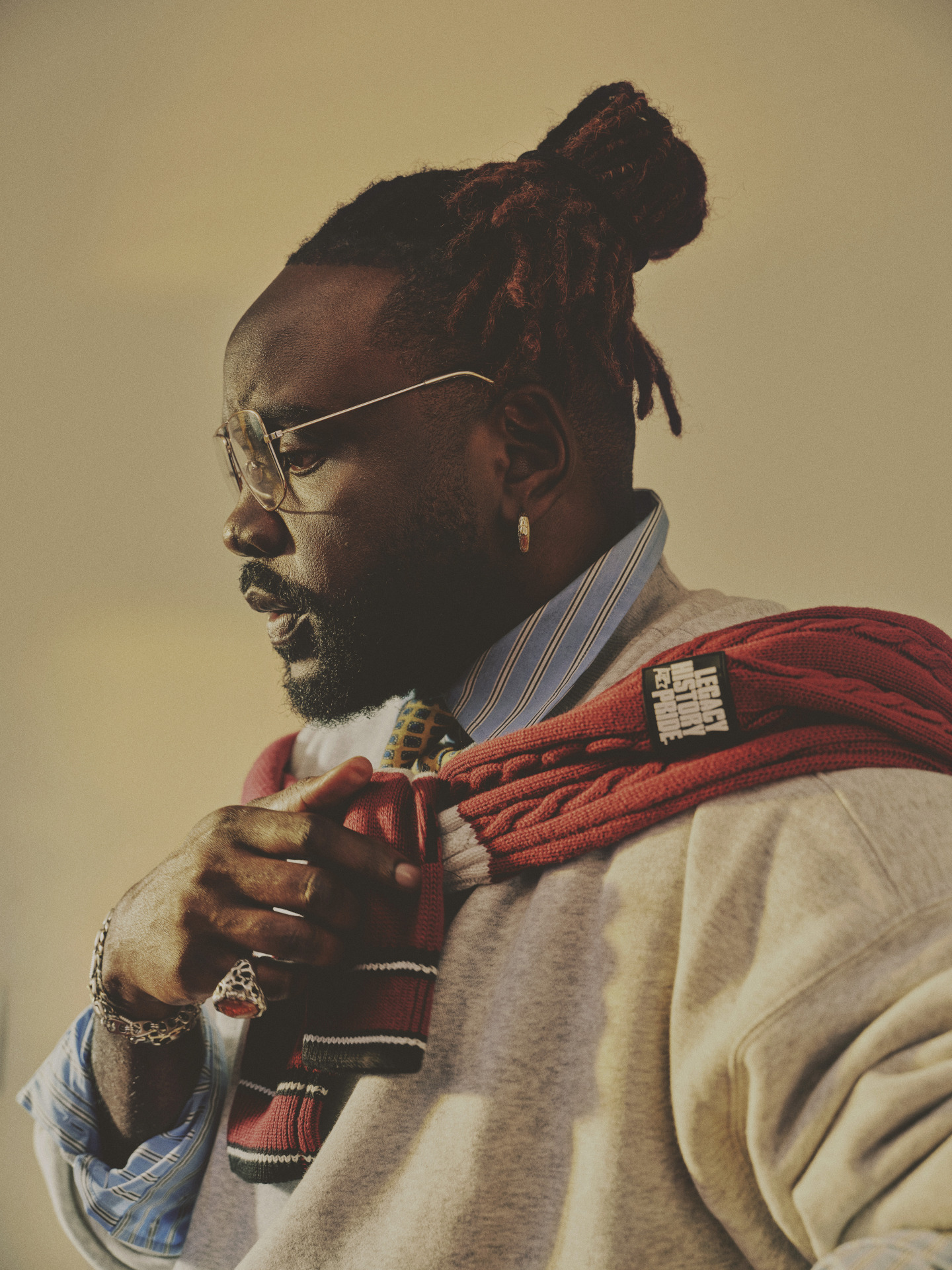 Image: Micaiah Carter for EBONY.
Image: Micaiah Carter for EBONY.
Hollywood has never been a place designed for someone like him—a man who refuses to be neatly categorized, who carries the weight of Black identity into every role, and who demands that even the most marginalized stories be told with care and complexity. Yet here he is, reshaping the contours of that space, just as he once reshaped the stages at Spelman and the halls of Morehouse.
“We’re always trying to figure out how to act and be and move in different places,” he told me earlier, his words echoing in my mind. “We are the amazing shapeshifters of a culture because we are always told the places we can occupy and where we can be…we always do it. We’re always doing it.”
What Henry understands, perhaps better than any Morehouse Man I’ve met, is that it’s not just about moving through those spaces—it’s about holding onto who you are while you do it, bending the space until it fits you, not the other way around.
TEAM EBONY – CONTENT
Executive Vice President, Content
Candace Rodney – @cjrodney
Executive Director, Editorial
J’nelle Agee – @jnagee30
Executive Director, Creative
Dunnie West – @dunnie
Director, Development & Production
Yadira Espinal – @isthatyadira
Director, Social
Selina Smith – @selina.mvriee
Director, Talent
Ashle Mitchell – @ashle_monae
Director, Editorial
Savannah Taylor – @savmtaylor
Entertainment & Culture Editor
Delaina Dixon – @delainadixon
Music Editor
Emanuel Okusanya – @kusanye
Writer, Fashion & Beauty
Victor Vaughns – @vqvaughns
Editorial Writer, Brand Solutions
Kristin Morgan – @kayforkrstn
Copy Editor
Jonathan Giles – @jgileswrites
Senior Manager, Social
Kai Bailer – @_kaai
Manager, Social
Gitory Bartell – @gitoriousbig
Manager, Video
Annastacia Gladston – @athenaturalista
Video Editor
Dennis Hope –@Lowkey_hope
Graphic Designer
John Bruton – @madbruton
Project Manager, Creative
Janald Dufont – @justjay_d
Coordinator, Content
Simone Walker – @s.im
Coordinator, Social
Maiya Byrd – @_maiyasimone
Coordinator, Editorial
Hayley Mason – @hayleymasontv
Cover Team
Talent
Brian Tyree Henry – @briantyreehenry
Cover Story Writer
Donovan X. Ramsey – @donovanxramsey
Photographer
Micaiah Carter – @micaiahcarter
Executive Producer / Creative Producer
David Wept – @davidwept
Line Producer
Jagger Corcione – @burberryboxers
Production Manager
Abi Perl – @itsabiperl
1st Assistant Director
Bryan Boardley – @bquietonset
Lighting Tech
Sebastian Johnson – @lens_face
1st Assistant
Christian Koepenick
Photo Assistant
Evan Farnsworth – @efarns12
Digitech
Blake Mohr – @blakemohrdp
Production Designer
Ivan Fomin – @fomini
Art Director
Andranik Arutiunian – @andrik_aruti
Location Manager
Ron Dabach – @ron_filmlocations
Social Videographer & Editor
Abe Azab –@azabmedia
Production Assistants
Kymani West –@westpiccs
Scott Morrow
Truck PA
Uri Uribe
Stylist
Alexander Julian – @alexanderjulian
Groomer
Kathy Santiago – @kathypsantiago
Assistant Groomer
Tracey Anderson – @traceytheartist
Hairstylist
Charzetta Wilson – @hairbychar
This Month’s
Cover
October 2024 Digital Cover Experience: The Homecoming with Brian Tyree Henry
Story By: EBONY Team
For EBONY’s October 2024 The Homecoming Issue, Brian Tyree Henry illuminates our cover as a vessel that amplifies how distinctively special Historically Black Colleges & Universities are as he shines across Hollywood.
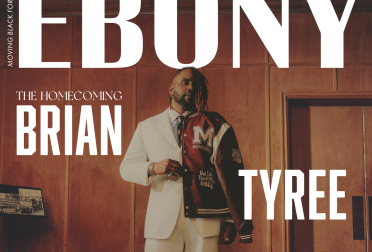
A Morehouse Man of Many Faces
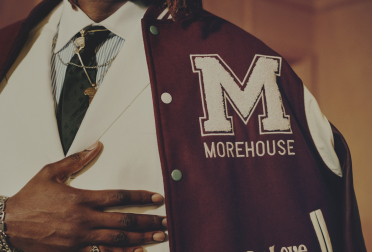
Explore Brian Tyree Henry’s HBCU-Inspired Collegiate Fashion from EBONY’s ‘The Homecoming’ Issue
Read More
Previous
Covers
September 2024 Digital Cover Experience: The Fashion Issue with Andra Day
For EBONY’s September 2024 Fashion Issue, Andra Day discusses how her spirituality has guided her life and how her second album, nine years after her first, is a return to the water for a spiritual rebirth.
In This Issue

Andra Day: A Fashionable Life of Divine Intention

Andra Day’s Style Evolution is Rooted in Authenticity and Resilience

From ‘Rise Up’ to ‘CASSANDRA,’ Here’s a Timeline of Andra Day’s Musical Milestones
View More
Previous
cover stories
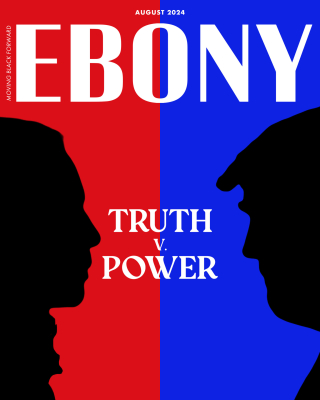
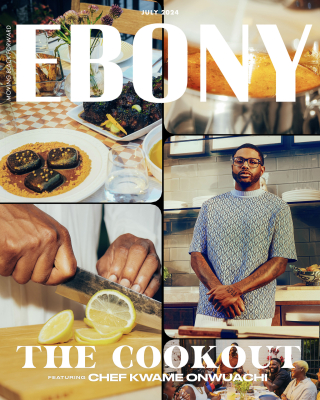
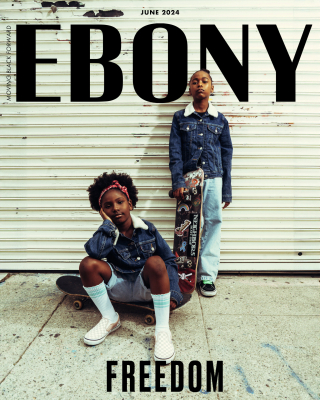
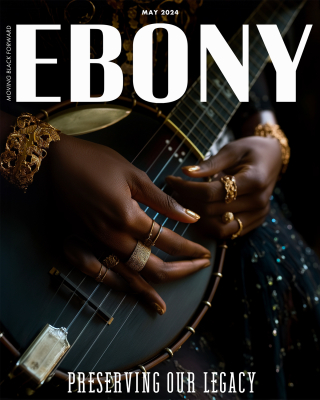
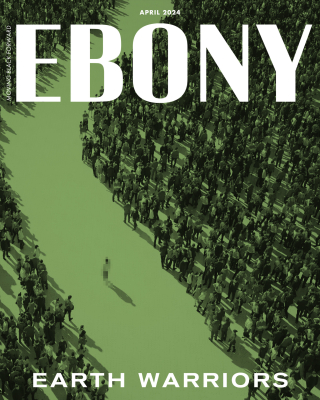
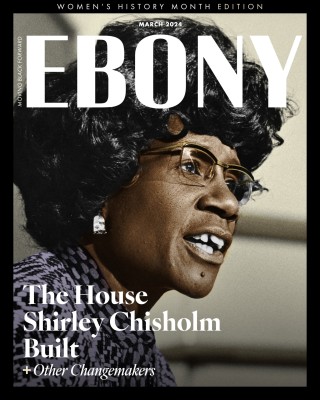
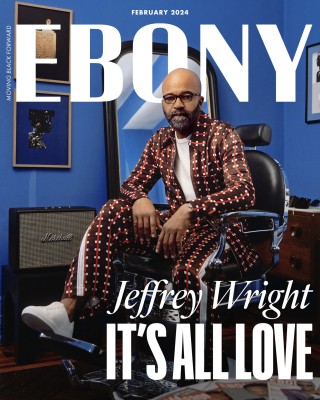
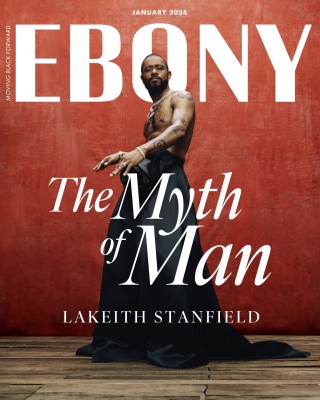
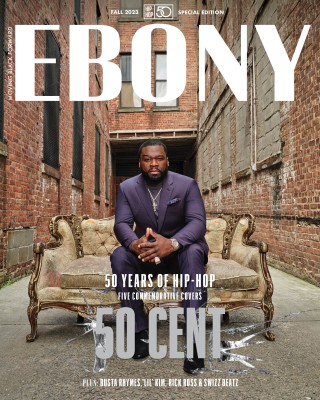
![The Chi Cover Final Cover[63]](https://blacktwitter.com/wp-content/uploads/2024/10/The-Chi-Cover-Final-Cover63-320x426.jpg)
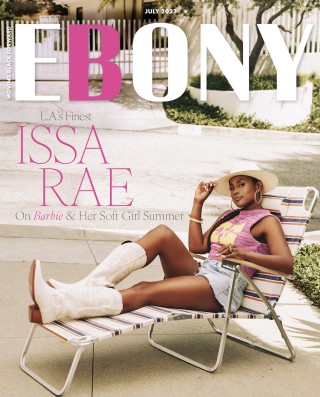
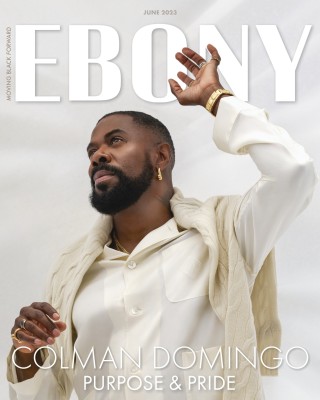
![Hailey Bailey Cover[1]](https://blacktwitter.com/wp-content/uploads/2024/10/Hailey-Bailey-Cover1-320x426.jpg)
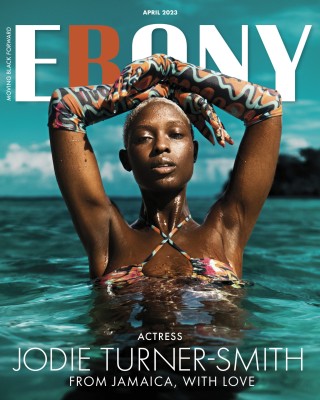
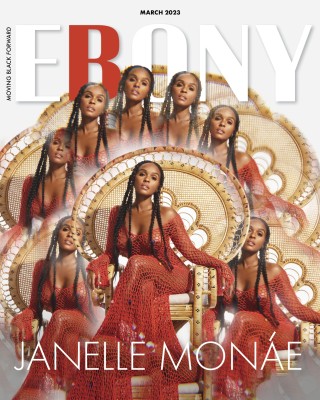
![Jonathan Majors Retouched Cover eye[1]](https://blacktwitter.com/wp-content/uploads/2024/10/Jonathan-Majors-Retouched-Cover-eye1-320x426.jpg)
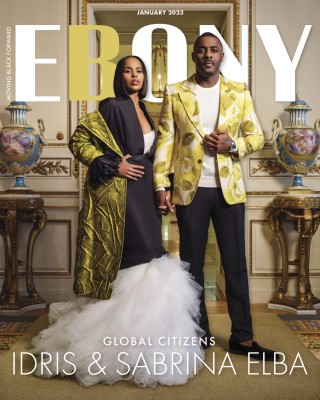
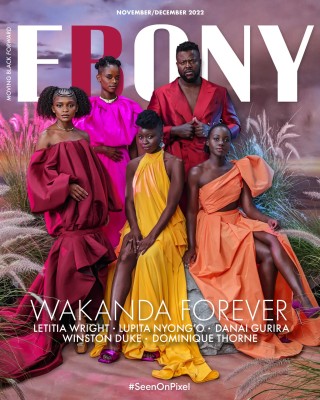
![CIARA- 1st cover drop[1]](https://blacktwitter.com/wp-content/uploads/2024/10/CIARA-1st-cover-drop1-320x426.jpg)
